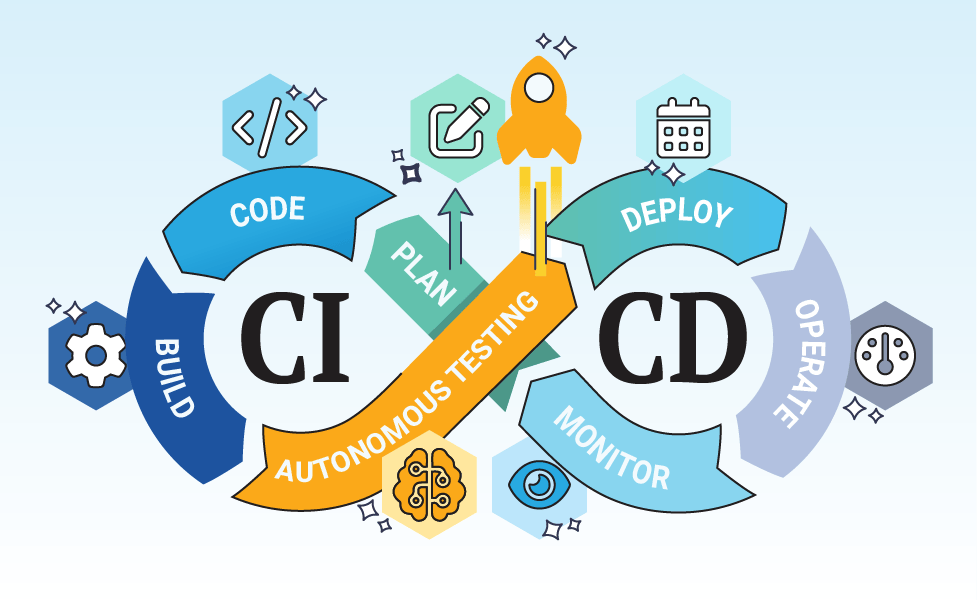Implementing CI/CD Pipelines with Modern Tools
Samuel Lincoln - July 27, 2025

In cloud projects, it’s essential to design a DevOps pipeline that enables frequent and reliable deployments without compromising security or stability. A well-structured pipeline supports automation, ensures traceability of changes and provides mechanisms for fast rollback when needed. This approach not only helps teams deliver updates quickly but also maintains the resilience and compliance required in modern cloud environments.
Continous Integration
To support continuous integration and deployment, specific pipelines should be built for each server or function, running multiple integration and unit tests, as well as performing static code analysis and security scanning. Tools such as Jenkins, GitLab CI/CD, or GitHub Actions can automate these workflows. For managing dependencies, building artifacts, and deploying changes with zero downtime, technologies like Docker, Terraform, Ansible, and Kubernetes help ensure automation, consistency, and high availability throughout the process.
Maintaining Traceability and Controlled Releases
To ensure traceability, it is important to maintain consistent commit messages and adopt standardized branching and tagging strategies throughout the project. Additionally, deployment techniques like blue/green deployments and canary releases can be used to gradually introduce changes, allowing teams to identify and resolve potential issues before they affect the entire user base.
Rollback Strategies and Monitoring
To enable safe rollbacks, deployments should be made immutable, ensuring that the last known stable build remains readily available for immediate restoration in case of failures. Additionally, integrating centralized logging and monitoring helps track application health in real time and facilitates rapid identification of root causes when issues arise.